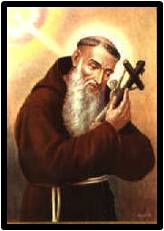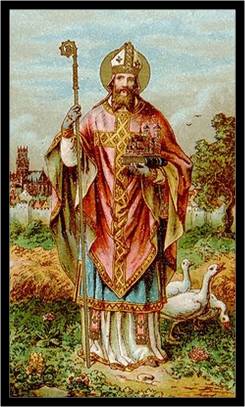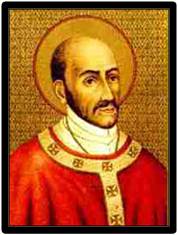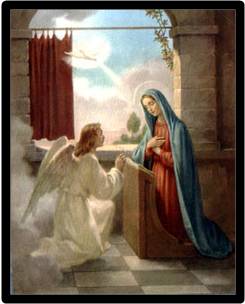
Blessed Didacus was born in Cadiz, Spain. He was baptized Joseph Francis by his parents who loved their faith and practiced it. They were delighted when their child built an altar and decorated it. He would kneel and pray to Jesus, to Our Lady and to St. Joseph.
When he was old enough, Joseph learned to love the Mass and became an altar server at the Capuchin Franciscan church just down the street. He used to get up early enough to be at the church each morning and wait for the doors to be unlocked. He never missed a day.
One of the Capuchin priests or brothers gave Joseph a book about the lives of the Capuchin saints. He read it and read it again learning. every story. He grew to love the holy men who were poor and humble like Jesus. The day came when he asked to join the order. He was accepted and went to Seville, Spain, for his training, called a novitiate. He began a new life with a new name, Brother Didacus.
After years of preparation, Brother Didacus was ordained a priest. He was sent throughout Spain to preach to the people the Good News of Jesus which he did with joy. His homilies (sermons) were so clear and kind that people listened. They even brought friends to listen. Soon an ordinary church was too small for the crowds.
When Father Didacus was preaching, the talks were held outdoors, usually in the town square or in the streets. Father Didacus loved to preach about the Blessed Trinity and was know as “the Apostle of the Blessed Trinity and of Our Lady, the Mother of the Good Shepherd.” He was always available to hear confessions, too. He was happy when people came to the sacrament of Reconciliation.
Whenever he had some free time, he visited prisons, hospitals and the homes of shut-ins (people with infectious diseases). Father Didacus died in 1801 and was declared “blessed” by Pope Leo XIII in 1894.

St. Ludger was born at Zuilen, Friesland (modern Nederlands) in northern Europe. His parents Thiadgrim and Liafburg were rich Frisian nobles and his brothers Gerburgis and Hildegrin also became saints.
When he was a young boy, he heard St. Boniface preach and his words touched Ludger’s heart. Ludger studied hard for many years in England and became a priest.
He then returned to the Netherlands as a missionary and began to travel far and wide preaching the Good News. He was very happy to share all that he had learned about God with everyone who listened to him. Pagans (people who didn’t believe in God) were converted and Christians began to live much better lives. St. Ludger built many churches and monasteries.
Then suddenly barbarians called Saxons attacked his land and drove the priests out. It seemed as though all St. Ludger’s work would be lost. But he would not give up. He first found a safe place for his disciples. Then he went to Rome to ask the Holy Father, Pope Adrian I, what he should do.
For over three years, Ludger lived in the Benedictine monastery as a good, holy monk. But he did not forget his people at home. Then King Charlemagne requested him to return to his country and Ludger returned and continued his work. He worked very hard to bring the good news of Jesus to people and many of the pagan Saxons became Christians.
When he was made a bishop, Ludger gave an even better example by his great kindness and piety. Once, jealous men spoke against him to King Charlemagne saying that he was spending more money on charity than on church decoration. The king ordered him to come to court to defend himself. Ludger went obediently to the castle.
The next day, when the king sent for him, Ludger said he would come as soon as he had finished his prayers. This made the king angry. But St. Ludger explained that although he had great respect for the king, he knew that God came first. “Your Majesty will not be angry with me,” he said, “for you yourself have told me always to put God first.”
The king could not find fault with such a wise answer and loved and admired the holy Bishop very much. No matter how busy he was, Ludger never gave up his time of prayer or meditation.
St. Ludger died after celebrating two Masses on Passion Sunday in 809. He performed his duties in the service of God even on the day he died.




